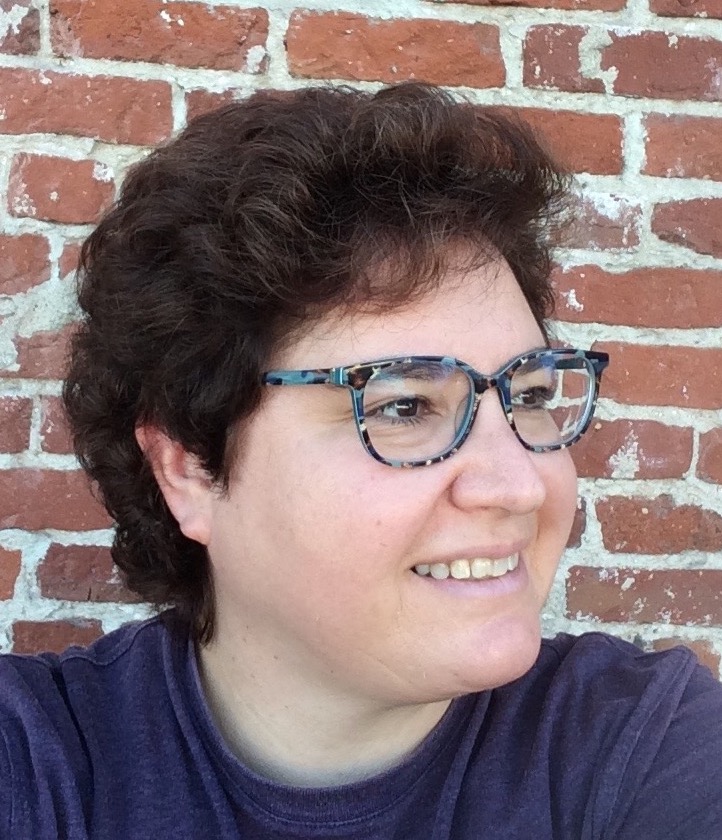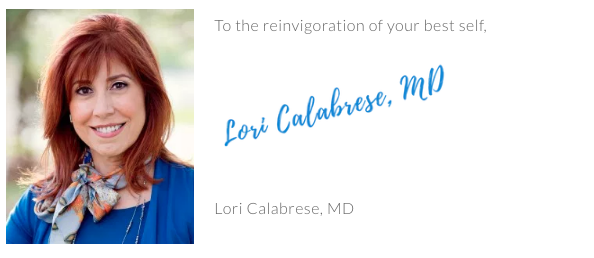KRIYA!!

The most phenomenal ketamine conference to date!
Last weekend I attended and presented at the ketamine KRIYA Conference 2018 in San Francisco. This conference emerged as the most dynamic gathering of front-line ketamine practitioners I’ve ever experienced.
And what an event!
The ketamine KRIYA Conference 2018 was extraordinarily different than any other research or clinical conference I’ve attended. It’s clear that the realm of ketamine treatment for psychiatric disorders is growing wider and deeper.
There was a true spirit of inquiry, extraordinarily open collaboration, and presentations of risks, failures, and triumphs. Sheer transparency. Openly exposed vulnerabilities. A clear admission of the limitations of what we know. The latest information about clinical uses of ketamine in psychiatry.
The insider news.
What happened when Raquel put all of it — and all of us — together?
Palpable energy instantly exploded!
During the presentations — which were riveting. As we met for coffee. Chatted on the beautiful conference grounds, sprawled out over the steps, snugged down into comfy couches, talked over creative and inventive lunches, inhaled coffee (for some of us, all throughout the day!) — there was the sense that we needed to learn from each other as fast as we could. So … we shared Ubers and Lyfts and dinner tabs.
We came from all over the country … and from as far away as Russia.
We’re serious about this.
And what a weekend! We learned so much from each speaker and each other. We talked about our data, our practices, our experiences, what we’ve learned. What we still don’t know.

Soooo many different backgrounds, so many different approaches providing patient care, so much desire to reduce suffering in our patients.
Founded by Raquel Bennett, Ph.D., KRIYA is the Ketamine Research Institute and it is devoted to understanding the use of therapeutic ketamine in psychiatry and psychotherapy.
I must give a shout out to Raquel Bennett.
In such a few short years, she single-handedly founded, organized and grew KRIYA, an organization devoted to helping people heal and live fuller lives through safe, legal, and effective ketamine treatment. She is originator of the first international ketamine conference — KRIYA’s first conference, in 2015 — on the therapeutic use of ketamine.
Raquel has earned our respect, appreciation, and applause for the enormously hard work of bringing together experts who work with therapeutic ketamine in very different ways, using different routes, for different therapeutic purposes, in all aspects of psychiatry and psychotherapy, as well as in chronic pain and hospice.
Ketamine is a visionary medicine.
But Raquel Bennett, Ph.D, is a visionary.
Fantastic speakers, wonderful food, and gorgeous (read: non-hotel) settings gave all of us opportunities to pick the brain of someone nearby. We shared, we ate, we discussed, we listened. And at the end, we kept talking until they put away the chairs, and turned out the lights … until we each left for the airport. And then checked in and kept going.
Meet me in Terminal 2. I’m at Starbucks. Find us in the International Terminal. We’re sitting in the food court.
Until one by one, each had to break away to catch a plane.
… You haven’t seen anything til you’ve seen the excitement that comes from connection.
Many thanks to Raquel and her incredibly talented, organized and generous team for making this all possible.

Though our backgrounds are different, and our methods varied, it was clear that we share the same passion: to help reduce suffering from psychiatric symptoms and physical pain.
Next, let me say, I can’t possibly share it all with you here — there were 30 different speakers over 2 days, fascinating and varied discussion panels, and a lively sharing of experiences and ideas that kept us on our toes till the wee hours.
This conference was thrilling.
Thrilling.
I attended KRIYA last year. But there has been so much growth, so much more research, so many new frontiers since then … that this gathering really can’t compare.
These 30 speakers ran the full gamut of experience with using therapeutic ketamine in psychiatry — different practice settings, different studies, varied doses, varied routes of administration, varied preparation. Varied goals.
This was no room for small or closed minds.
We ALL learned and grew during those two days.
Raquel Bennett opened to set the stage for this smorgasbord of ideas.
She said, “We are witnessing the birth of a new field.” She spoke about how ketamine was developed for anesthesiology and has served that field well. But the therapeutic use of ketamine has birthed a new field of ketamine in psychiatry.

And she emphasized that the two are as different as apples and toast.
One way they’re different is in the goals of treatment. For anesthesiologists, ketamine has been used for managing consciousness or sedation and addressing physical pain. In psychiatry, the goal of treatment is all about treating psychiatric symptoms and managing psychiatric distress.
The second difference is in training and areas of expertise, diagnostic skills, and managing emergencies, and she described the differences between anesthesiologists and psychiatrists. Anesthesiologists are best at managing surgical emergencies, interventional pain procedures and life support. But psychiatrists are experts in diagnosing psychiatric conditions and managing psychiatrist emergencies.
The third difference is in the type of patient who presents for treatment. In psychiatry, our patients need a lot of contact, a high degree of emotional safety, and a great deal of emotional support and reassurance. Things we’re deeply attuned to by our psychiatric training.
She also talked about the differences in routes of administration as well as the dose used for each type of patient to reach the individual goals of sedation vs. relief of psychiatric symptoms.
Add to that the amount of preparation required in each field. An anesthesiologist can walk into the surgical area, say hello to his patient, and tell him to count backwards from 12.
However, psychiatrists and psychologists offering ketamine treatment invest in substantial and detailed preparation of the patient before beginning ketamine treatment — to prepare for the treatment itself, the treatment experience, and how to metabolize or make sense of the treatment experience.
And the preparation involves not only a thorough history of symptoms, treatment course, previous medication and treatment failures, but also a thorough developmental and social history.
Our education and training centers on entering into an ongoing therapeutic relationship with our patients and the critical understanding and provision of a safe, therapeutic frame to do the deep work we do.
These two fields are two different animals.
Dr. Bennet encouraged everyone to learn from everyone else, in effect, to “cross pollinate” these fields and help each other to improve in clinical practice.
Then she described the use of ketamine in psychotherapy as a “lubricant” for psychotherapeutic work.
Several of the speakers described this method in their practices. This is called ketamine-assisted psychotherapy, or ketamine-facilitated psychotherapy.

And she went a step further, to describe the use of therapeutic ketamine in psychotherapy as a tool for deep spiritual exploration. This is where the goal of treatment is not symptom relief per se, but personal growth, self-knowledge, or transcendent exploration.
All in all, she encouraged matching the treatment to the individual patient, recognizing our responsibility to learn more about varied strategies and to share our findings within our field.
Speakers were diverse and fascinating. If you’ve been keeping up with progress in the field of psychiatric ketamine treatment, some of these names are sure to jump out at you:
Will Van Derveer, M.D., Wesley Rylan, M.D., Scott Shannon, M.D., Michael Stanger, M.D., Jeffrey Becker, M.D., Jason Wallach, Ph.D., Dan Engle, M.D., Lori Calabrese, M.D., John Krystal, M.D., Phil Wolfson, M.D., Jeff Guss, M.D., Elias Dakwar, M.D., George Greer, M.D., Evgeny Krupitsky, M.D., Patrick Sullivan, D.O., and Jennifer Winegarden, D.O.
And we had some lively and fascinating panelists, including Gary Bravo, M.D., Alison McInnes, M.D., Steven Levine, M.D., Steve Best, M.D., Veronica Gold, M.F.T., Greg Wells, Ph.D., Bob Grant, M.D., Genesee Herzberg, Psy.D., Jessica Katzman, Psy.D., Jennifer Dore, M.D., Julie Megler, P.N.P., Steven Levine, M.D., Steve Best, M.D., Sandhya Prashad, M.D., Steve Mandel, M.D., and me.
Oh yes, I mentioned I also presented my own data, and am excited to tell you more about that…
But… that will have to wait for another day … Without question, our fledgling new psychiatric field has turned a corner.
Ketamine KRIYA Conference 2018.
We’ll never forget this one. We can only hope they keep getting better…if that’s possible.
As exciting as this wealth of information may be, if you’re suffering from depression, bipolar depression, PTSD, OCD, social anxiety, substance use disorders…and even suicidal thinking, don’t wait. Call us.
Thankfully, if your symptoms are mild, there are a host of antidepressants and other medicines and treatments that can hopefully help you.
Ketamine is at its best for those who are severely suffering.

If you’re deeply affected by severe symptoms of depression and anxiety, we can help. Call and arrange an appointment.
Ketamine isn’t for everyone. Of course not. It doesn’t help everyone. But even among those who aren’t helped initially… sometimes there are those who get a delayed response and in a few months reach remission quite by surprise.
And even though we can’t promise everyone they’ll reach remission, the truth is that a very large percentage do.
As we’ve said before, ketamine is the most rapid and effective treatment for depression that we’ve seen in our lifetime … and really … ever.
We’re constantly learning ways to help more people benefit and get better. And chances are…you’ll experience the most remarkable transformation you could have imagined.
Our Results
At Innovative Psychiatry, we see people with these symptoms and disorders get better every week with ketamine treatment. Our results are extraordinary, and our remission rate is very high. Call for an appointment and let’s talk.
Ketamine works in some different areas of the brain in different ways than traditional medicines you might have tried that didn’t work for you. Your life really can improve dramatically.
Find out what this remarkable treatment can do for you.

Very interesting . I did recognize a noted Research MD from that little place in New Haven. I am happy this treatment is available but I do not think it is as widely known as it should be. I stumbled upon it quite accidentally and I thought I was aware of most treatments for MDD. I have been mentioning to others who are not aware of it either. I guess everyone has to keep talking about the good outcomes from Ketamine.